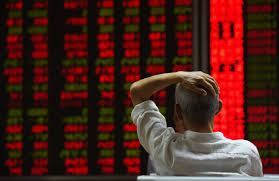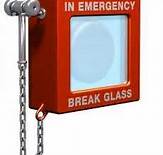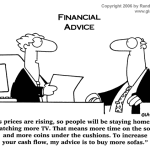 First things first: Do. Nothing.
First things first: Do. Nothing.
Because, as you might have heard, the US stock market plummeted yesterday.
The Dow Jones Industrial Average (DJIA) index, made up of the stocks of 30 major US companies, dropped by a record-setting 1,500 points before closing down 1,175 points on the day.
Another popularly-followed index comprising 80 percent of the US stock market, the S&P 500 index, saw its worst one-day performance since August 2011, dropping 4.1% on the day. UK, German, and Japanese stock markets indices all plunged yesterday between 1.5 and 2.5 percent, as global stock markets tend to correlate in the short run.
You may be asking questions like what caused this? What will happen next? And finally, what should I do about it, personally?
Let’s acknowledge the upsetting part of this before moving on to a more calm, appropriate reaction to yesterday’s fall, which itself followed on the heels of Friday’s devilish drop of 666 points in the DJIA.
The point-drop plunge in the DJIA yesterday dwarfed earlier record-setting one-day losses at the height of the 2008 financial crisis on September 29, 2008 (777 points), as well as the drop on the first day the market opened following the 9-11 attacks, September 17, 2001 (685 points).
Incidentally, the focus on a “points” change in a stock market index is a mistake, as hopefully the 2001 and 2008 examples show. I’m making a math point, but an important one too-often ignored. We should only ever care about percent changes in indices. A 1,000 point plunge on the DJIA starting at around 10,000, such as we saw in 2001 and 2008, means the market was down 10 percent. A 1,000 drop in the DJIA starting at around 25,000 is just a 4 percent drop. Unpleasant, sure, but a more normal-sized occurrence. Yesterday and Friday were not 2008 and 2001-level drops in percentage terms, even if they involved more points on the DJIA.
Also, incidentally, the focus on one-day moves is almost always a mistake. Even after the last two trading sessions the US market indices like the DJIA and S&P 500 are up over 21 percent and 15 percent respectively just in the past year, not counting dividends. My own rule is that if you invest in the stock market your shortest measurement for returns should be about 5 years. Focusing on the daily results will lead you astray.
Interestingly, nothing even close to notable happened yesterday in market-moving news. The new US Federal Reserve Chairman Jerome Powell started his job on Monday, the poor guy. “Thanks for the welcome, markets!” he probably muttered to himself grimly at the end of his first day.
So what happens next? I have no idea.
More importantly, all of the talking heads about to tell you what happens next also have no idea. They will use sophisticated-seeming and contradictory words like “overdue-correction,” “necessary pull-back,” “buying-opportunity,” “beginning of a bear-market,” “popping of the bubble,” or “signs of impending recession.” My own hot take is that talking heads are notably poor at predicting the future with their hot takes. They should be aggressively ignored.
Does that mean I don’t think the market could drop 20 percent from its 52-week high, the definition of a bear market? Does that mean I think the economy is, or is not, going to see two consecutive quarterly drops in gross national product, the definition of a recession?
Like I said, I have no idea. Stock markets could very well drop 20 percent or even 30 percent, which they seem to do with regularity, every decade or so. It doesn’t mean the market is broken or anything even notable has necessarily happened. It’s just what stock markets do. As a stock market investor myself, I know for sure the market will drop 30 percent at some point, I just don’t know when. It could be this week. It could 8 years from now. I’m not holding my breath.
Speaking of which, what should you do about this market drop, personally? This is the most important part, so I put the answer in the first line of this post.
Do Nothing. Or at least, do nothing different from the usual. If you can’t do nothing with your money this week, you probably shouldn’t have it invested in the stock market.
If you regularly make contributions to your investment accounts, keep doing that. Remember, everything’s a bit cheaper than it was last week!
If you regularly withdraw funds from the market to fund your retirement, keep doing that as well. Remember, it’s up a lot from last year!
If you follow the minute-by-minute and day-by-day ups-and-downs of this market and hope to nimbly trade in-and-out, I can’t help you, because you’re doing it wrong.
You can’t control what the market does and what it is going to do. You can only control your behavior. So, buckle up, and remember to do nothing.
A version of this post ran in the San Antonio Express News.
Post read (106) times.




